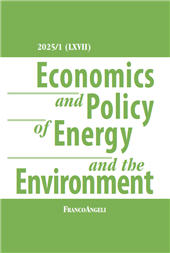Heterogeneous impacts of climate agreements : empirical insights into Kyoto and Paris Commitments
37-63 p.
This study evaluates the heterogeneous impacts of the Kyoto Protocol and Paris Agreement on greenhouse gas emission reduction across diverse country groups, including OECD, EU, BRICS, Asian, and African nations. Employing fixed-effects panel regression and Difference-in-Differences methodologies, the research analyzes longitudinal data (1990-2020) to assess emission performance using absolute reductions and CO2 intensity metrics. Findings reveal significant disparities: OECD and EU nations demonstrate consistent progress in absolute and intensity-based reductions, while BRICS countries improve CO2 intensity but face rising absolute emissions. Asian and African nations show limited progress, constrained by financial and technological barriers. The study highlights the differentiated trajectories driven by Kyoto's rigid, binding commitments versus Paris's flexible, inclusive framework of Nationally Determined Contributions (NDCs). Emerging economies benefit from intensity-based targets, balancing economic
growth with emissions management. However, the lack of enforceable mechanisms under the Paris Agreement hinders uniform progress. This research underscores the need for tailored, equity-focused policy interventions to enhance climate governance. It emphasizes strengthening international cooperation, financing mechanisms, and monitoring systems to achieve the Paris Agreement's goals while addressing unique regional challenges and fostering sustainable development. [Publisher's text]
-
Articles from the same issue (available individually)
-
Information
ISSN: 2280-7667
KEYWORDS
- climate governance, Kyoto Protocol, Paris Agreement, greenhouse gas emissions, Difference-in-Differences (DID)


